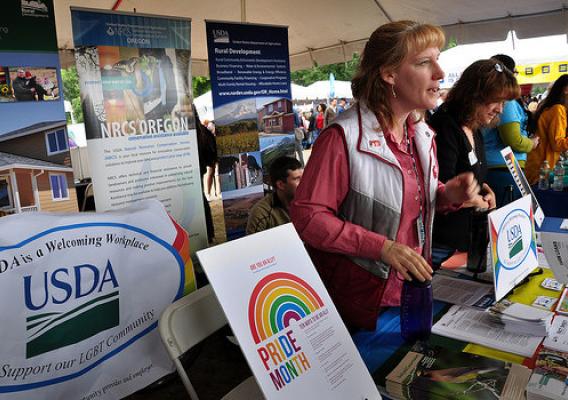USDA Rural Development and The Hanover County Chapter of Habitat for Humanity are thinking outside of the box with their new partnership in Virginia. By working together, USDA Rural Development and Habitat for Humanity are able to provide mortgage assistance to low and very low-income rural families. Earlier this month, Agriculture Deputy Secretary Krysta Harden visited Bailey Woods, the first-ever Habitat Development in this area, as part of USDA’s celebration of National Homeownership Month.
Every year, rural families rely on USDA Rural Development’s direct and guaranteed home loans to provide an affordable opportunity to become homeowners. Bailey Woods will provide building lots for eight new houses and a renovation of one. These homes range from 1,500 to 1,700 square feet and feature many energy efficient features, such as ceiling fans, high insulation, and high efficiency heat pumps. These cost reducing systems will provide families in rural areas such as Hanover County the opportunity to purchase a home, while maintaining low operating costs.









